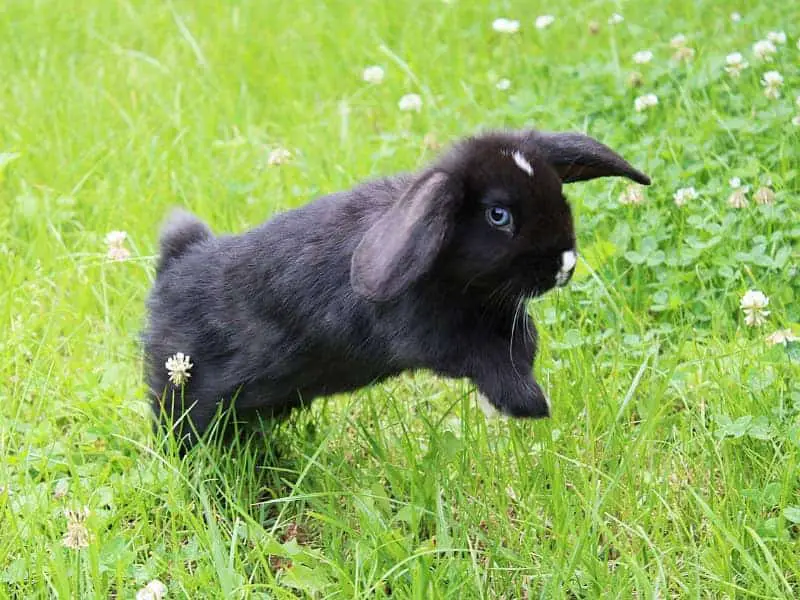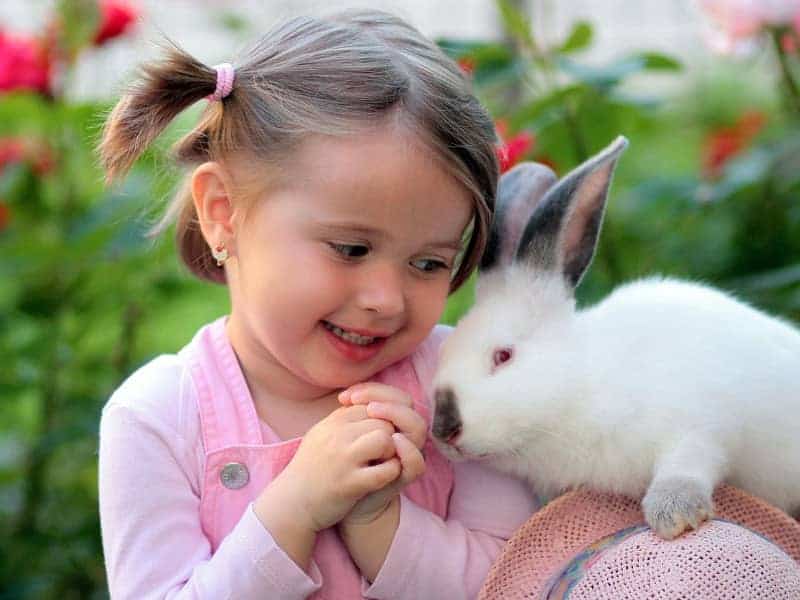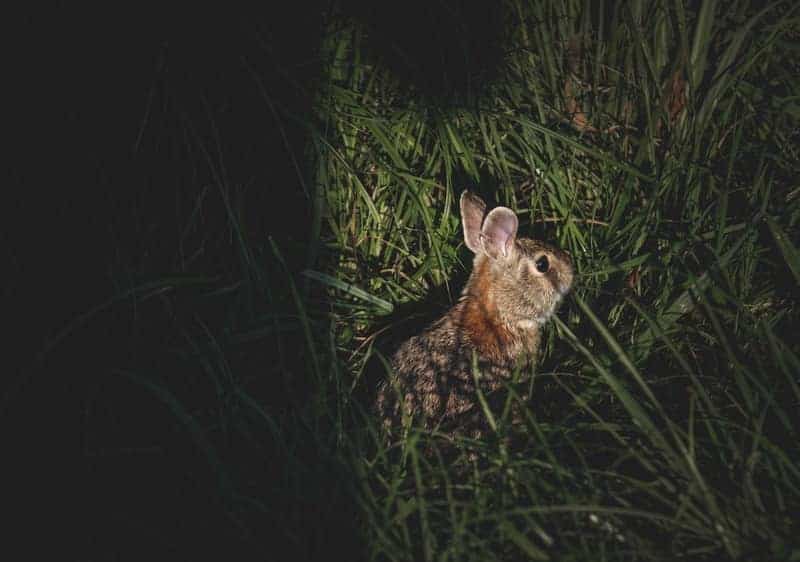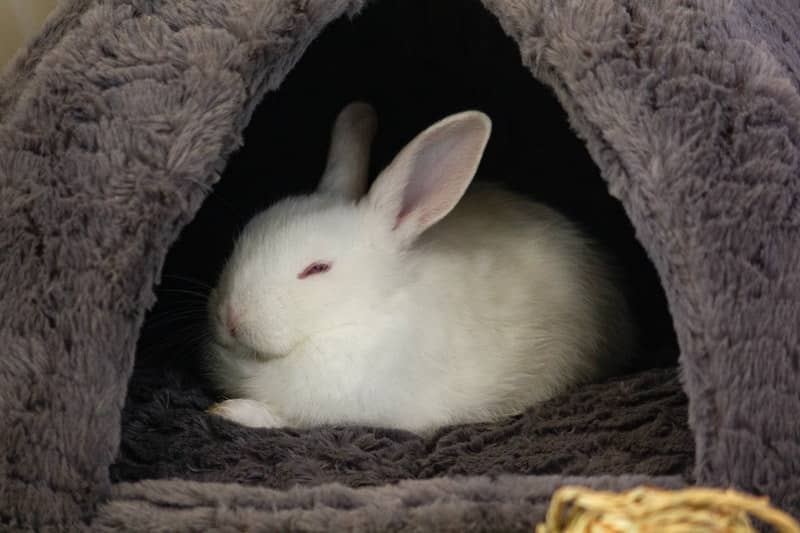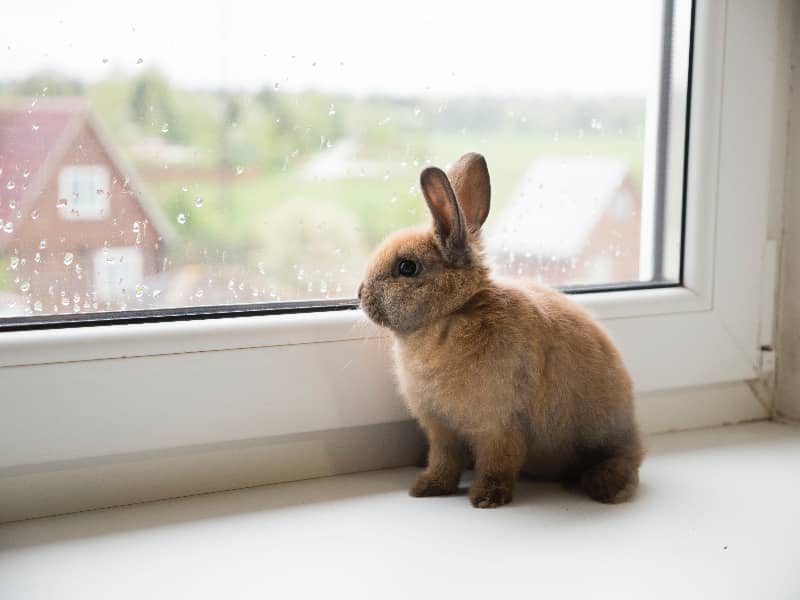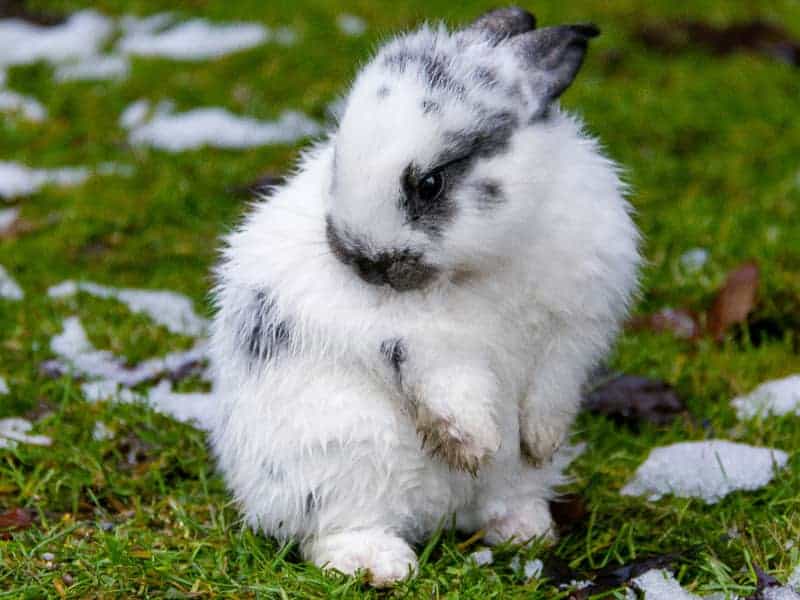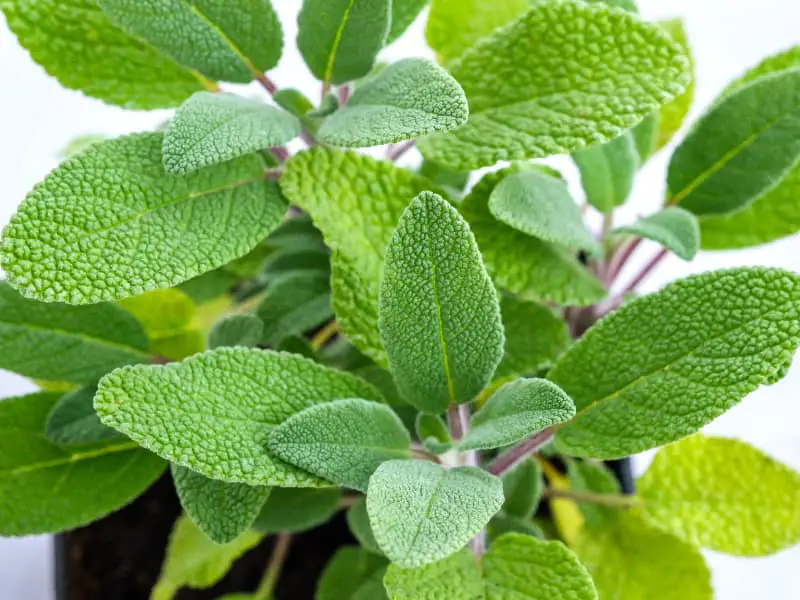
Are rabbits allowed to eat sage?
It's no secret that rabbits love green food. But what about herbs that are often found in our gardens and kitchens? Opinions are particularly divided when it comes to sage. This article offers you an in-depth analysis of the consumption of sage by rabbits, looking carefully at each part of the plant.
- Are rabbits allowed to eat sage?
- Sage: a brief overview
- Can dwarf rabbits eat sage?
- Can rabbits eat sage root?
- What happens if a rabbit eats too much sage?
- The history of sage and its use in animal nutrition
- Domesticated rabbits and their eating habits
- Are there differences between wild and cultivated sage?
- Nutritional information of fresh sage (per 100 grams):
- Alternative herbs to sage
- What happens if a rabbit eats too much sage?
- Conclusion: Can rabbits eat sage?
Sage: a brief overview
Sage is a widespread plant known for its aromatic leaves and medicinal properties. Originally from the Mediterranean region, it has spread around the world. The plant is valued both in the kitchen and in traditional medicine. But is it also suitable for our furry friends?
Can rabbits eat sage leaves?
Many rabbit owners ask themselves: Can rabbits eat sage leaves? The leaves are the best known part of sage and are often used in cooking. They contain essential oils, tannins and flavonoids. While these substances can be beneficial for humans, you have to be careful with rabbits.
A moderate amount of sage leaves can be safe for a rabbit. However, it should not be part of their main diet. Due to the essential oils it contains, too many leaves can lead to indigestion.
Can rabbits eat sage flowers?
The flowers of sage are also rich in essential oils. They have similar properties to the leaves, but are present in lower concentrations. So if you are considering giving your rabbit sage flowers, it is advisable to do so only in small quantities.
Some rabbit owners report that their animals love the flowers and eat them without any problems. However, as with all feeding experiments, you should be careful and observe your pet's reaction closely.
Can rabbits eat sage stalks?
The stem of sage is less aromatic than the leaves or flowers. While it contains fewer essential oils, it is not completely free of them. Rabbits can enjoy the stem as a crunchy snack. But the same applies here: only feed in moderation.
Even though stems are often considered less dangerous, the total intake of sage - no matter which part - should remain moderate.
Can dwarf rabbits eat sage?
Dwarf rabbits are particularly popular because of their small size and charming character. However, their small stature also means that they can be more sensitive to food than their larger relatives.
In principle, the same rules apply to dwarf rabbits as to larger breeds. However, special care should be taken. The smaller body mass means that even smaller amounts of essential oils can have a stronger effect. It is therefore advisable to feed dwarf rabbits very sparingly with sage and to keep a close eye on them after feeding.
Can rabbits eat sage root?
While the above-ground parts of sage are the best known, the question is: what about the roots? The roots contain less essential oils than the rest of the plant, but can still be problematic for rabbits.
The main concern about feeding roots is the alkaloids they contain. These can be toxic to rabbits if consumed in large quantities. It is therefore advisable not to feed rabbits with sage roots, even if the risk appears to be lower than with leaves or flowers.
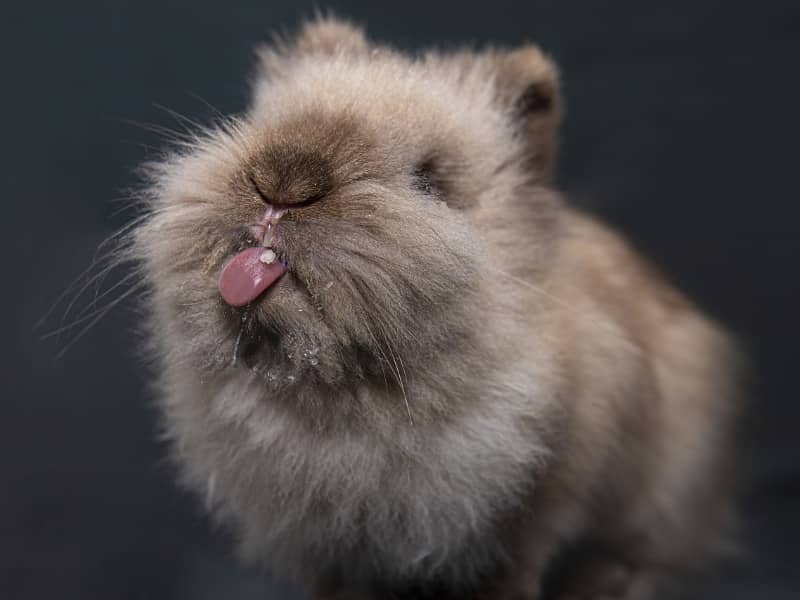
What happens if a rabbit eats too much sage?
It is important to know the potential symptoms if a rabbit has ingested too much sage or other harmful substances. Symptoms can include indigestion, lethargy, altered eating behavior or even seizures. If you notice any of these signs, it is important to consult a vet immediately.
The history of sage and its use in animal nutrition
If we want to understand the relationship between animals and sage, it helps to take a look at history. Sage has its origins in the Mediterranean and has been used for both culinary and medicinal purposes since ancient times. But how was it used in animal nutrition?
In ancient times, people noticed that animals sometimes intuitively ate certain plants when they were ill. Sage, known for its healing properties, may also have been consumed by wild animals. But what about domesticated animals such as rabbits?
Domesticated rabbits and their eating habits
The dietary habits of rabbits have changed over the centuries. While wild rabbits fed mainly on grasses, domesticated rabbits were given a more varied diet over time. This may have included herbs such as sage.
However, it is important to note that rabbits' diets were less controlled in the past. This means that they may not always have been fed what was best for them. Understanding of the specific needs of rabbits has increased over time and therefore it is easier to make informed decisions about their diet these days.
Are there differences between wild and cultivated sage?
Another consideration that is often overlooked is the difference between wild and cultivated sage. While wild sage may contain less potent chemical compounds, cultivated sage, especially varieties bred for their strong flavor, may have stronger concentrations of certain compounds.
For rabbits, this can mean that cultivated sage in larger quantities could potentially be more harmful than its wild relative. It is therefore advisable to take extra care when feeding them sage from the supermarket or from your own garden.
Naturally! The nutritional information for fresh sage differs from that for dried sage. Here are the average nutritional values for fresh sage per 100 grams:
Nutritional information of fresh sage (per 100 grams):
| Nutrient | Quantity (per 100 g) |
| Calories | 43 kcal |
| Total fat | 1,28 g |
| - saturated fatty acids | 0,42 g |
| Carbohydrates | 10,63 g |
| - Sugar | 1,72 g |
| Dietary fiber | 2,8 g |
| Protein | 1,68 g |
| Vitamin A | 590 IU |
| Vitamin C | 32.4 mg |
| Calcium | 165 mg |
| Iron | 2.81 mg |
As always, these values are average values and can vary depending on the sage variety and cultivation method.
Alternative herbs to sage
There are many herbs that are used in cooking and for medicinal purposes. Some, such as parsley and dill, are generally considered safe for rabbits. Others, such as oregano and basil, can also be given in moderation.
In comparison, sage can be more problematic in larger quantities due to its essential oils and other compounds. However, this does not mean that it is completely forbidden. As mentioned above, it's the quantity that makes the difference. A small stalk of sage here and there can be fine as long as it doesn't become a regular part of your rabbit's diet.
What happens if a rabbit eats too much sage?
It is important to know the potential symptoms if a rabbit has ingested too much sage or other harmful substances. Symptoms can include indigestion, lethargy, altered eating behavior or even seizures. If you notice any of these signs, it is important to consult a vet immediately.
Conclusion: Can rabbits eat sage?
The question of whether rabbits are allowed to eat sage cannot be answered with a simple yes or no. It depends on the quantity and the specific part of the plant. Moderate consumption can be unproblematic, but too much can lead to health problems.
It is always important to put your rabbit's welfare first and to play it safe if you are unsure. And as always, if you have any questions or concerns, you should consult a vet.
Author

-
Garden animal - A life with nature
Welcome to my animal blog! My name is Dirk and I am happy to take you on my journey through the fascinating world of animals and gardening.
Born 54 years ago, I have had an insatiable curiosity for the animal world around me since childhood. Although I have moved professionally in other industries, my true passion has always been animals and nature. It is remarkable how a small garden has become such an important part of my life.
Many of my fondest memories are associated with the animals that share our home. Whether it's the curious squirrels that scurry across the trees in the morning, the colorful variety of birds that visit our feeders, or the busy bees and butterflies that pollinate our flowers, every moment with them is invaluable to me.
This blog is my contribution to share my experiences, discoveries and insights with like-minded people. Here I will share stories of unforgettable encounters with animals, give tips on gardening and creating wildlife-friendly habitats, and take you on my journeys through nature.
Thank you so much for being here!
Cordial,
Dirk aka garden animal
Last posts
- 27. February 2024PetsVeganes Hundefutter – Grün und Gesund?
- 18. January 2024ChickensOregano für Hühner
- November 27, 2023HamsterDiurnal hamsters
- November 24, 2023HamsterHamster hammock

